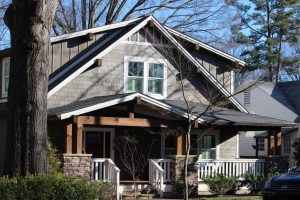Rent vs Buy in Charlotte NC?
 One of the most common questions from 1st time home buyers is whether or not they should buy now or wait for another year (or two). There’s actually a lot packed into this question and as such, I thought it would be useful to discuss it more here! Some basic stats on the Charlotte real estate market currently and home ownership before we dive in:
One of the most common questions from 1st time home buyers is whether or not they should buy now or wait for another year (or two). There’s actually a lot packed into this question and as such, I thought it would be useful to discuss it more here! Some basic stats on the Charlotte real estate market currently and home ownership before we dive in:
- Home ownership’s impact on net worth is astounding. Home owners have, on average, a net worth 36x greater than the average renter
- 40% of all home purchases in 2014 will be from 1st time home buyers like yourself
- Interest rates/home prices are projected to increase in 2015
- Rents continue to rise while the cost of home ownership is at near all time lows
As you might have guessed by the stats above, if you have saved a bit, and expect to be here in Charlotte for at least a few years, home ownership makes sense, it may be a condo/townhouse if you’d prefer less maintenance.
Is the lack of a down payment holding you back? Ask Me About Our Low and NO Down Payment Loan Options
Benefits of Home Ownership Include
(data from a Harvard study on the financial benefits of home ownership)
- You’re paying for housing whether you own or rent – why not pay your mortgage instead of your landlord’s? And deduct if from your taxes too!
- Owning is a form of forced savings. When paying a mortgage, you’re increasing the equity in your home and your overall wealth
- Purchasing a house is a leveraged investment and one of the few available to normal Americans. For example, if you put 10% down, you have a leverage factor of 10 meaning that for every one percent the home increases in value is a 10% return on investment! Wow… so you buy a $200,000 home, a 2% appreciation rate raises the value 4K per year. Some Charlotte neighborhoods are increasing 5-10% per year.
- There are substantial savings and tax benefits to owning a home. Charlotte has experienced, and by most accounts will experience appreciating home prices. After two years owning, capital gains taxes on homes under $250k are waived for individuals and under $500K for married couples. This means that you could move every two years, make substantial money of off improvements/appreciation and never pay taxes on it! Not a bad thing!
- You are moving on with your life, out of the renter stage into the owner and equity stage.
Ok, so those are some very solid benefits! What are some of the common objections and issues getting in the way of home ownership?
The most common objection? Fear!
Fear, of making a mistake is a real and often the main objection to home ownership for those 1st time home buyers who have good credit and can afford it. A real estate meltdown (back in 08 and 09) will do that to you! The good news is the real estate market is on much healthier footing now and the neighborhoods in Charlotte are back at pre-recession values or higher.
If you know you will be living here at least a few years, have a good job, good credit and some savings, then it is in all likelihood your time to buy. Home prices are going up, so are interest rates… making the cost of ownership higher.
You may have heard there  are many potential pitfalls to buying… that’s true, we call them “sandtraps” and “landmines.” For 1st time home buyers, having two key partners you can trust is essential to avoiding those pitfalls and landmines. The first is a high quality buyer agent (I have a suggestion here:-) who can help you sort through the homes, the neighborhoods and the process of buying your first home – and then negotiate on your behalf. Remember, as a Buyer agent, I look out for your best interests above all others, when the listing agent, the guy or gal on the sign, only looks out for the sellers! Our job as your Agent is to be the guide to help avoid the sandtraps and landmines.
are many potential pitfalls to buying… that’s true, we call them “sandtraps” and “landmines.” For 1st time home buyers, having two key partners you can trust is essential to avoiding those pitfalls and landmines. The first is a high quality buyer agent (I have a suggestion here:-) who can help you sort through the homes, the neighborhoods and the process of buying your first home – and then negotiate on your behalf. Remember, as a Buyer agent, I look out for your best interests above all others, when the listing agent, the guy or gal on the sign, only looks out for the sellers! Our job as your Agent is to be the guide to help avoid the sandtraps and landmines.
The 2nd is a quality lender who can help you secure financing. First lets start out with who not to use. We suggest to our buyer clients that “friends don’t let friends borrow from the big banks. ” The only thing we dislike more is the “online” lender. I would highly recommend using a local lender instead of the big banks. Both classes of lenders play games with rates, and when they close on time, that is by luck, not design. We prefer local direct lenders- these folks work on commission. What this means to you is if your home doesn’t close, they don’t get paid. Further, the very LAST thing they would ever do is to pre-qualify someone, and later turn them down. From their commission only view, they would put in a lot of work- and Not get paid. Same is true for the Agent, and it costs Buyers money. Direct Lenders, our lenders, are very careful with their pre-approvals.

Compare this to the big banks where their loan officers work on salary and small commission, if it closes they are happy- in their view your closing date is treated more like a recommendation than a hard date. We had one big bank (who offered a great rate in an ad) call our client, tell them that even though they were pre qualified, “they couldn’t do their loan, and by the way, no one else could either.” 7 days prior to closing they stood to lose their Earnest money and due diligence. One of our lenders got them to closing in 12 days.
Further, the good direct lender works with half the case load of the big bank lender, a tenth of what an online lender works. These may seem like a small difference, but the difference in outcomes is too consistent to ignore. On 3 separate occasions, the big banks or online lenders found out they couldn’t close a customer, after the due diligence expired. Fortunately our direct lenders were here to save the day. Quality local folks close on time, the big banks? Rarely. Online lenders? an after thought. Run into a bump in the road? Local lenders work through it, the big banks? They say, “Sorry, next?” If you use one of our recommended lenders, they will 99.99% of the time close on time, and 100% of the time , the rate you locked at.
If you’d like to learn more about the process, I’d encourage you to sign up for your free 1st time home buyer guide, full of useful info on the “How to” and the process of purchasing your first home.
Down Payment/Closing Costs Assistance
Most 1st time home buyer loan packages available today require a down payment of 3.5% to 20%. There are several special programs that would allow for no down payment, notably if you are a veteran, the VA loans up to $417,000. The State Employee Credit Unions (and the associated one for police and fire) offer low interest, no down payment loans to state employees, from teachers to anyone who has a SECU account. In addition to the down payment, there are usually significant closing costs (at least a few thousand bucks). However, a quality Buyer Agent may be able to negotiate these into the purchase price :). If you make $50K or more a year, and have good credit, we can find you a house that will work, and you might find you can move in for something comparable to a rental deposit and first month’s rent!



